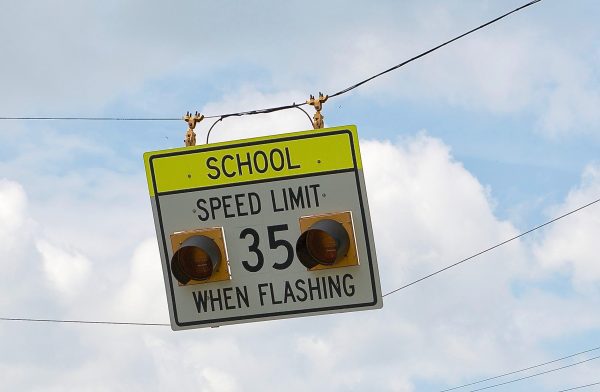Researcher Offers Insights As Legislation Considers Town Charter Schools

UNC Charlotte researcher Roslyn Mickelson is providing context for a debate about legislation to allow towns near Charlotte to create charter schools. She is drawing from her decades’ long research into segregation and re-segregation of schools and commenting in local and national media accounts. Those include:
- U.S. News and World Report
- The Charlotte Observer
- Spectrum NEWS
- WFAE 90.7 – Charlotte’s NPR News Source
The legislation, which was introduced by N.C. Rep. Bill Brawley, would allow four majority-white towns in the Charlotte suburbs to create charter schools, with preference to town residents for slots in the schools. The bill won final legislative approval on Wednesday, June 6, 2018, opening the door for four Mecklenburg County towns to create their own charter schools. Because it’s a local measure, the bill does not need approval from Gov. Roy Cooper.
The new law, coupled with a change in this year’s state budget that gives municipalities authority to spend tax money on public education, has drawn national attention as potentially affecting segregation and school choice in North Carolina.
Charter Schools in Charlotte and Mecklenburg County are directly and indirectly undermining school district efforts to desegregate public schools, according to a study co-authored by UNC Charlotte researchers and released on Jan. 30, 2018 by the Civil Rights Project/Proyecto Derechos Civiles at UCLA.
“Charlotte-Mecklenburg Schools were once the nation’s bellwether for successful desegregation. Today, the district exemplifies how charter schools can impede districts’ efforts to resist re-segregation,” said Mickelson, Chancellor’s Professor and professor of Sociology, Public Policy and Women’s and Gender Studies at UNC Charlotte.
“This research has important implications not only for schools and communities in the Charlotte Mecklenburg region, but for the national debate over the growth and role of charter schools in our nation’s education system,” Mickelson said.
Amid a federal push for the expansion of charter schools, the new study of Charlotte-Mecklenburg Schools (CMS) in North Carolina, Charters as a Driver of Resegregation, describes how charter schools directly and indirectly contribute to resegregation in traditional public schools. The study illustrates how charter schools undermined the capacities of Charlotte-Mecklenburg Schools leaders to effectively redesign student assignment boundaries to achieve the district’s goal of breaking up high concentrations of poverty.
In addition to Mickelson, co-authors are Jennifer Ayscue of the Civil Rights Project at UCLA; Amy Hawn Nelson of the University of Pennsylvania, who is former Director of Social Research for the UNC Charlotte Urban Institute and Director of the Institute for Social Capital at UNC Charlotte; Jason Giersch of UNC Charlotte’s Department of Political Science and Public Administration; and Martha Cecilia Bottia of UNC Charlotte’s Department of Sociology.
“Prior research has consistently demonstrated that charters tend to be more segregated than traditional public schools,” Ayscue said. “This study of Charlotte-Mecklenburg Schools is important because it describes how charters also drive segregation in traditional public schools.”
Two central findings of the study emerge:
- The departure of some middle-class, academically proficient students who are white or Asian from traditional public schools for charters directly made the task of socioeconomic and racial desegregation mechanically more difficult. Their departure to the charters leaves fewer middle class white and Asian students in the traditional school, thereby contributing to more segregated schools in both sectors.
- The proliferation of charters in Mecklenburg County served as grist for the political activism of suburban parents who threatened a middle-class exodus from CMS to the charter sector if new assignment boundaries did not honor their current neighborhood school assignments. These threats indirectly undermined policy actors’ initial willingness to act boldly and decisively in revamping pupil assignments to curb segregation.
In 2016, CMS was the most racially segregated large school system in North Carolina. While national discourse presents charter schools as an alternative to underperforming schools of poverty, in Charlotte, the majority of charter schools are located in suburban areas and serve primarily academically proficient, middle-class students who are white or Asian.
In an effort to reinstate diversity as one of its priorities, and break up high concentrations of poverty in the district, CMS adopted a new student assignment plan in May of 2017. The new plan affects less than 5% of the district’s students and only modestly shifts concentrations of poverty. Most of the schools with intense concentrations of educational and economic privilege or disadvantage will remain as they were under the former assignment plan—as will the racial isolation that accompanies socioeconomic segregation.
“Charter schools in Charlotte-Mecklenburg are not only segregated, but they fuel political opposition to reducing unequal education in racially and economically segregated schools,” says Professor Gary Orfield, co-director of the UCLA Civil Rights Project. “I believe many charter school leaders care deeply about and are committed to high quality education, but without strategies and measures to increase diversity, charter schools contribute to school re-segregation in Charlotte, North Carolina, and as our research shows, in communities across the country.”
A summary and copy of the full report is available online here. The Civil Rights Project/Proyecto Derechos has commissioned more than 400 studies, published more than 15 books and issued numerous reports monitoring the success of American schools in equalizing opportunity and providing the authoritative source of segregation statistics.
